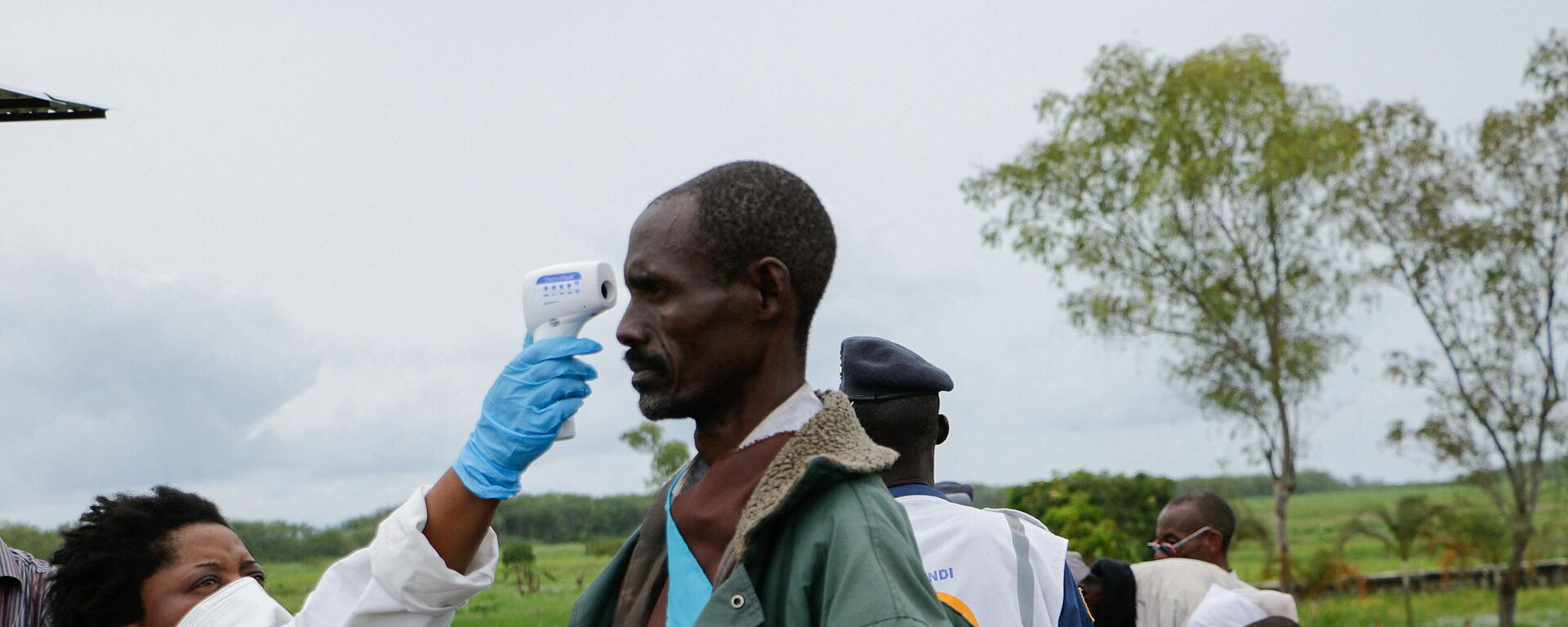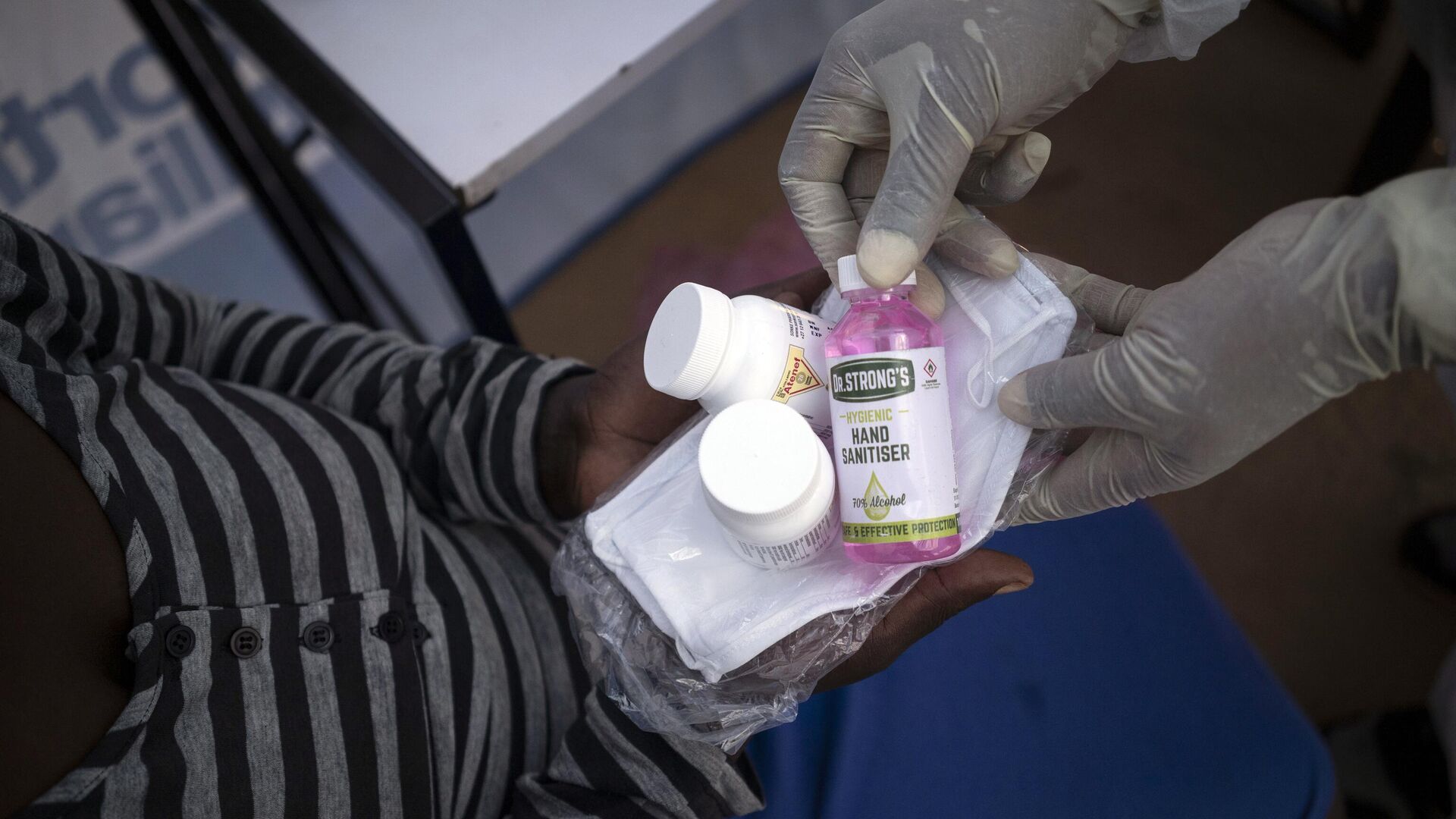https://sputnikglobe.com/20230216/big-pharma-puts-profits-over-saving-african-lives-unaids-head-says-1107500663.html
Big Pharma Puts Profits Over Saving African Lives, UNAIDS Head Says
Big Pharma Puts Profits Over Saving African Lives, UNAIDS Head Says
Sputnik International
The head of UNAIDS, Winnie Byanyima slammed pharmaceutical companies for prioritising profits over saving people's lives.
2023-02-16T14:23+0000
2023-02-16T14:23+0000
2023-02-16T14:27+0000
africa
health
aids
hiv/aids
unaids
https://cdn1.img.sputnikglobe.com/img/07e7/02/10/1107500798_0:96:3072:1824_1920x0_80_0_0_c11287b8fd9f97aab0686be43719921f.jpg
The head of UNAIDS, Winnie Byanyima, has drawn attention to racist principles that prevent black and brown people from accessing the same level of AIDS treatment as white people and slammed pharmaceutical companies for putting profits over saving people's lives.The UNAIDS head recalled the case of businessman Martin Shkreli, who increased the price of Daraprim, crucial for the treatment of AIDS patients, by 5,000 percent in 2015.Byanyima also stressed that African countries largely depend on international funding in combatting HIV/AIDS, with the "vicious debt cycle" leading to cuts in healthcare and education financing, pushing countries "across the continent" into making "impossible trade-offs".Earlier, UNAIDS cited studies showing that the probability of a girl with secondary school education becoming infected with HIV was 50 percent less likely than in case of a girl that does not have such education.The UNAIDS chief underlined the destructive impact of the stigma associated with HIV in Africa, noting that it stops people from resorting to medical institutions. During her recent speech at the University of Nairobi, she said that her brother, who had HIV, was "killed by stigma" when he stopped using antiretroviral (ARV) drugs after returning to Uganda from Europe.Byanyima also noted that injectable treatment could be "a gamechanger" for countries with HIV/AIDS stigma. However, for instance, cabotegravir, which is viewed as the most effective form of prevention and is administered every two months, is still largely unaffordable even in developed countries.Last year, patents for generic versions of cabotegravir were approved for 90 countries were approved by the UK patent-holder ViiV – after months of efforts by UNAIDS and other organizations to achieve this approval.According to UNAIDS, sub-Saharan Africa accounts for more than 50 percent of all new infections of HIV, with illnesses related to AIDS being the leading cause of death among African women; young women and adolescent girls are three times more likely to get infected than men, the data shows.Earlier, in an interview with Sputnik, the dean of the School of Public Health at the University of Ghana, singled out Botswana, Eswatini, Cape Verde, Kenya, Lesotho, Malawi, Nigeria, Rwanda, Uganda and Zimbabwe as the African countries that have made "excellent progress" in combatting HIV/AIDS.
https://sputnikglobe.com/20230215/russia-helps-burundi-create-modern-lab-for-diagnosing-infections-1107459109.html
africa
Sputnik International
feedback@sputniknews.com
+74956456601
MIA „Rossiya Segodnya“
2023
News
en_EN
Sputnik International
feedback@sputniknews.com
+74956456601
MIA „Rossiya Segodnya“
Sputnik International
feedback@sputniknews.com
+74956456601
MIA „Rossiya Segodnya“
africa aids, big pharma aids, unaids africa, africa hiv, big pharma hiv, big pharma africa, hiv racism , aids racism
africa aids, big pharma aids, unaids africa, africa hiv, big pharma hiv, big pharma africa, hiv racism , aids racism
Big Pharma Puts Profits Over Saving African Lives, UNAIDS Head Says
14:23 GMT 16.02.2023 (Updated: 14:27 GMT 16.02.2023) The Joint United Nations Programme on HIV and AIDS (UNAIDS) was launched in 1994 to coordinate international actions against the disease. The agency promotes the principle of greater involvement of people living with HIV (GIPA), which was formulated in 1994, and later endorsed by the UN.
The head of UNAIDS, Winnie Byanyima, has drawn attention to racist principles that prevent black and brown people from accessing the same level of AIDS treatment as white people and slammed pharmaceutical companies for putting profits over saving people's lives.
"The World Trade Organization rules allow life-saving medications to be traded in the same way we could trade luxury goods. They allow pharmaceutical companies to set the price wherever they want, hoard their technologies and reap billions at the cost of lives," she said, as cited by the media.
The UNAIDS head recalled the case of businessman Martin Shkreli, who increased the price of Daraprim, crucial for the treatment of AIDS patients, by 5,000 percent in 2015.
"To me, that's racism, even though people don't want to call it out: valuing the profit of a few people, who happen to be white, over the lives of black and brown people around the world," Byanyima noted.
Byanyima also stressed that African countries largely depend on international funding in combatting HIV/AIDS, with the "vicious debt cycle" leading to cuts in healthcare and education financing, pushing countries "across the continent" into making "impossible trade-offs".
Earlier, UNAIDS cited studies showing that the probability of a girl with secondary school education becoming infected with HIV was 50 percent less likely than in case of a girl that does not have such education.
The
UNAIDS chief underlined the destructive impact of the stigma associated with HIV in Africa, noting that it stops people from resorting to medical institutions. During her recent speech at the University of Nairobi, she said that her brother, who had HIV, was "killed by stigma" when he stopped using antiretroviral (ARV) drugs after returning to Uganda from Europe.

15 February 2023, 13:08 GMT
Byanyima also noted that injectable treatment could be "a gamechanger" for countries with HIV/AIDS stigma. However, for instance, cabotegravir, which is viewed as the most effective form of prevention and is administered every two months, is still largely unaffordable even in developed countries.
Last year, patents for generic versions of cabotegravir were approved for 90 countries were approved by the UK patent-holder ViiV – after months of efforts by UNAIDS and other organizations to achieve this approval.
Byanyima also called on African governments to develop South-South partnerships on medical research and development, noting that the lesson of COVID-19 pandemic for Africa was: "you must have the capacity to produce yourself".
According to UNAIDS, sub-Saharan Africa
accounts for more than 50 percent of all new infections of HIV, with illnesses related to AIDS
being the leading cause of death among African women; young women and adolescent girls are three times more likely to get infected than men,
the data shows.
Earlier, in an interview with Sputnik, the dean of the School of Public Health at the University of Ghana, singled out Botswana, Eswatini, Cape Verde, Kenya, Lesotho, Malawi, Nigeria, Rwanda, Uganda and Zimbabwe as the African countries that have
made "excellent progress" in combatting HIV/AIDS.



